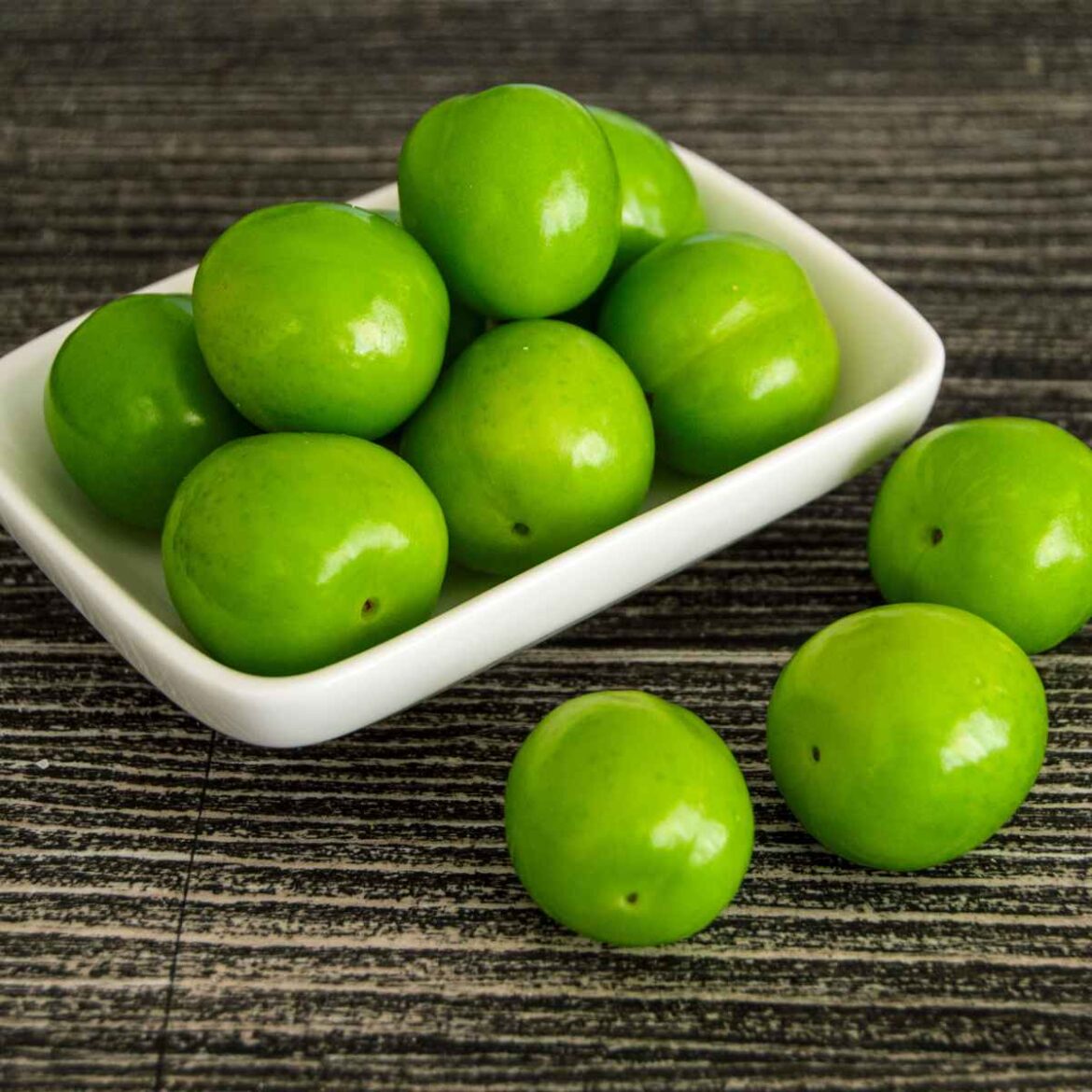Fruits that start with the letter “J” may not be the first to come to mind, but they offer a wide range of flavors, textures, and health benefits. From the sweet, crunchy flesh of Jujube fruits to the refreshing taste of Java Apple, these fruits bring delightful variety to your palate.
If you’re curious about exotic fruits or looking to add more nutritious options to your diet, this list of 20 fruits that start with J has something for everyone. Whether you’re interested in fruits from Southeast Asia, South America, or North America, you’re in for a treat.
Let’s explore the 20 fruits that start with J!
1. Jujube Fruit (Ziziphus jujuba)
- Region: Asia, South Asia
- Taste: Sweet, slightly tangy
- Texture: Crisp when fresh, chewy when dried
- Health Benefits: Rich in vitamins C and A, supports digestive health and immune function.
2. Java Apple (Syzygium samarangense)
- Region: Southeast Asia
- Taste: Sweet, refreshing
- Texture: Juicy, crunchy
- Health Benefits: High in water content, great for hydration and supporting skin health.
3. Jamaican Cherry (Muntingia calabura)
- Region: Central America, South America
- Taste: Sweet, slightly tart
- Texture: Soft, juicy
- Health Benefits: Rich in vitamin C, antioxidants, and fiber, promoting overall health.
4. Japanese Plum (Prunus salicina)
- Region: East Asia
- Taste: Sweet and tart, depending on the variety
- Texture: Firm, juicy
- Health Benefits: Packed with vitamin C and antioxidants, supporting skin health and digestion.
5. Jocote Fruit (Spondias mombin)
- Region: Central America
- Taste: Sweet, tangy
- Texture: Firm flesh with a fibrous center
- Health Benefits: Rich in fiber, vitamin C, and potassium, great for heart health and digestion.
6. Jostaberry (Ribes x nidigrolaria)
- Region: Europe, North America
- Taste: Tangy, similar to black currants
- Texture: Juicy, smooth
- Health Benefits: Excellent source of vitamin C, antioxidants, and fiber, promoting immune health and digestion.
7. Jelly Palm Fruit (Butia capitata)
- Region: South America
- Taste: Sweet, tropical
- Texture: Soft, jelly-like
- Health Benefits: High in fiber, vitamins A and C, supports digestive health and immune function.
8. Juniper Berries (Juniperus communis)
- Region: Northern Hemisphere
- Taste: Strong, aromatic, and slightly bitter
- Uses: Often used in making gin or as a spice in savory dishes
- Health Benefits: Contains antioxidants and anti-inflammatory properties, helpful for digestive health.
9. Jambolan Plum (Syzygium cumini)
- Region: South Asia
- Taste: Sweet, slightly astringent
- Texture: Firm, juicy
- Health Benefits: Known for supporting diabetes management, high in vitamins and antioxidants.
10. Jatoba Fruit (Hymenaea courbaril)
- Region: South America
- Taste: Nutty, sweet
- Texture: Dense, fibrous flesh
- Health Benefits: High in fiber and vitamin C, promoting digestive health and immune function.
11. Japanese Pear (Pyrus pyrifolia)
- Region: East Asia
- Taste: Crisp, sweet
- Texture: Juicy, firm
- Health Benefits: Low in calories and high in vitamin C, supporting skin health and hydration.
12. Jamaican Sugar Apple (Annona squamosa)
- Region: Caribbean
- Taste: Sweet, creamy
- Texture: Soft, fibrous flesh
- Health Benefits: High in fiber and vitamins A and C, supporting digestion and immune health.
13. Junglesop Fruit (Annona montana)
- Region: South America
- Taste: Sweet, citrusy
- Texture: Soft, juicy
- Health Benefits: Rich in vitamin C, antioxidants, and fiber, promoting overall wellness.
14. Jatoba Pod Fruit
- Region: South America
- Taste: Sweet, nutty
- Texture: Firm, chewy
- Health Benefits: Known for its anti-inflammatory and antioxidant properties, benefiting heart and digestive health.
15. Jackfruit (Artocarpus heterophyllus)
- Region: Tropical Asia
- Taste: Sweet, fruity
- Texture: Firm, fibrous flesh
- Health Benefits: High in vitamins A and C, potassium, and fiber, supporting digestion, heart health, and immunity.
16. Jelly Bean Fruit (Melochia corchorifolia)
- Region: Tropical regions
- Taste: Sweet, jelly-like
- Texture: Soft, squishy
- Health Benefits: High in antioxidants and vitamin C, boosting immune health.
17. Jamaican Plum (Spondias mombin)
- Region: Central America
- Taste: Sweet, tangy
- Texture: Chewy, fibrous flesh
- Health Benefits: High in fiber and vitamin C, supporting heart health and digestion.
18. Juniper Berry (Juniperus)
- Region: Northern Hemisphere
- Taste: Strong, aromatic
- Health Benefits: Known for its antioxidant and anti-inflammatory properties, beneficial for digestive health.
19. Jocote (Spondias purpurea)
- Region: Central and South America
- Taste: Sweet, sour
- Texture: Firm, juicy
- Health Benefits: Rich in vitamin C, fiber, and potassium, supporting digestion and heart health.
20. Jalapeno Pepper Fruit (Capsicum annuum)
- Region: North America
- Taste: Spicy, tangy
- Texture: Firm
- Health Benefits: Contains vitamin C and capsaicin, known for its anti-inflammatory and metabolism-boosting properties.
Conclusion
Fruits that start with J may not always be top of mind, but they offer a rich variety of flavors and health benefits. From the sweet and juicy flesh of Jujube fruits to the refreshing taste of Java Apple, these fruits contribute to overall wellness with their abundance of vitamins, fiber, and antioxidants. Whether you’re enjoying a tropical fruit like Jelly Palm Fruit or exploring the more nutty flavors of Jatoba fruit, these fruits bring something unique to your plate.
Have you tried any of these J Letter fruits? Share your experiences or ask any questions in the comments below!

